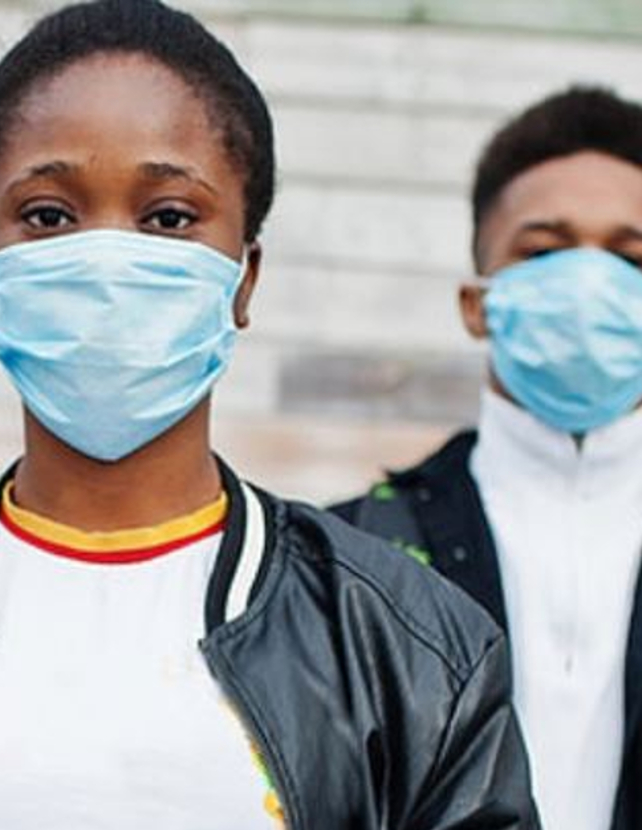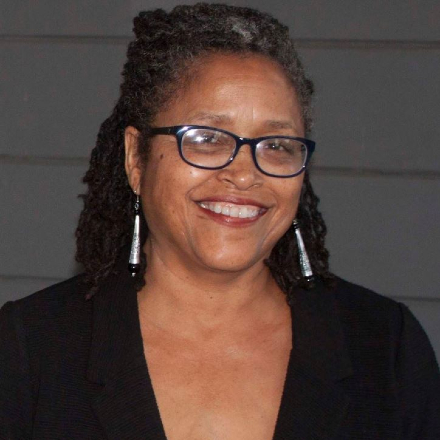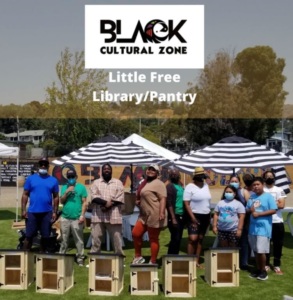Supporting Local Leaders Responding to the Pandemic in East Oakland
Program
Highlights

As the COVID-19 pandemic disproportionately impacted Black communities, East Oakland’s Black Cultural Zone Community Development Corporation, a grantee of PHI’s Together Toward Health program, developed a corps of nearly 200 Neighborhood Messengers to provide community support and education throughout the African American community.
120K people reached with COVID-19 information and support in East Oakland’s Black community
200 Neighborhood Messengers prepared to join the public health workforce
-
Focus Areas
Communicable Disease Prevention, Healthy Communities -
Issues
Population Health, Workforce Development -
Expertise
Health Education & Promotion -
Strategic Initiatives
COVID-19
When the COVID-19 pandemic shut down California in March of 2020, it quickly became clear that Black communities would be severely impacted. In East Oaklands predominantly Black neighborhood, local leaders faced food insecurity, widespread loss of jobs and income, lack of access to personal protective equipment, and critically, a lack of accurate information about COVID-19.
To meet these challenges, the team at the East Oakland Black Cultural Zone Community Development Corporation (BCZ CDC), a grantee of PHI’s Together Toward Health program, knew the solutions would have to come from the community. BCZ CDC knew that community support and education would be essential to keeping folks informed and safe to prevent the spread of COVID-19. And they knew they could leverage one of East Oakland’s greatest strengths: neighborhood connection.
The “promotores” or “community health workers” model, where trusted members of the community bridge the gap between the diverse populations they serve and the healthcare system, seemed like a good fit to address the challenges from COVID. But BCZ CDC wanted to take it a step further by making sure they could reach every person on every single block so that no one was left behind.
The organization put the call out all over East Oakland. BCZ CDC began recruiting “Neighborhood Messengers” in early Spring 2021 and soon had an organized group of nearly 200 Messengers who distributed fresh food, PPE, and timely COVID-19 information about testing and vaccinations with their neighbors on their specific block, and were able to reach 120,000 individuals overall.

Though it is probably the most disinvested part of Oakland with some of the roughest outcomes, it’s also a place where people talk to each other. We know our neighbors. Because our Neighborhood Messengers live on their block, they already know their neighbors and can build a relationship of trust with folks where they were.Nehanda Imara, Community Development Coordinator of the East Oakland Black Cultural Zone CDC
As the messengers spent time talking with families on their blocks, the program kept evolving to meet the community’s needs. The project also served as a workforce development program by providing training to the Messengers that they could use to further their careers, including bi-weekly sessions on everything from design principles to cultural humility. Now some messengers are continuing on as employees with BCZ CDC, and thanks to a partnership with local clinics, others will be trained to become home health workers.
 What started as a local East Oakland network also influenced wider city and county efforts. The BCZ CDC model helped inform Alameda County Department of Public Health’s Direct Outreach to Our Residents program (DOOR), linking residents to resources via door-to-door education by trusted messengers. And the City of Oakland studied the model in developing its new Neighborhood Safety initiative.
What started as a local East Oakland network also influenced wider city and county efforts. The BCZ CDC model helped inform Alameda County Department of Public Health’s Direct Outreach to Our Residents program (DOOR), linking residents to resources via door-to-door education by trusted messengers. And the City of Oakland studied the model in developing its new Neighborhood Safety initiative.
As Nehanda Imara said, “There’s a need for this kind of collective infrastructure for our communities, before, now, and for the future.”
Work With Us
You change the world. We do the rest. Explore fiscal sponsorship at PHI.
Support Us
Together, we can accelerate our response to public health’s most critical issues.
Find Employment
Begin your career at the Public Health Institute.
